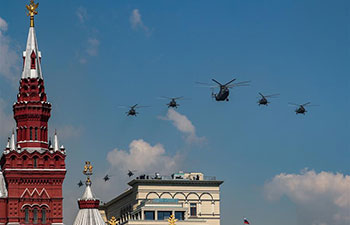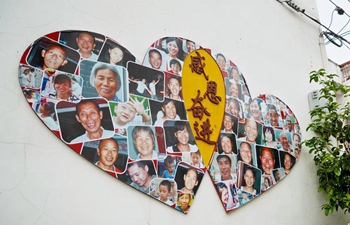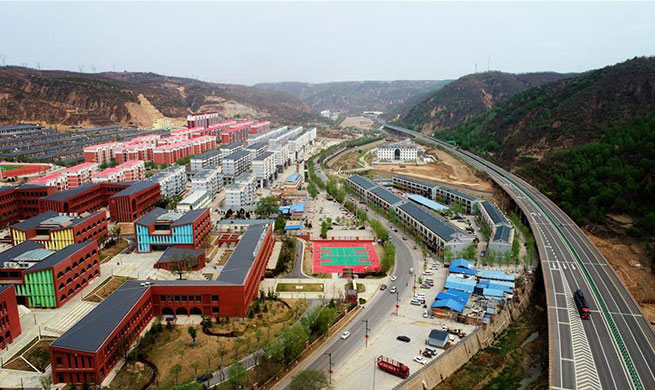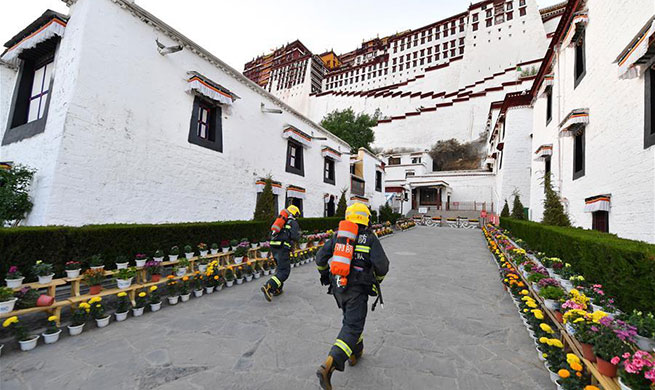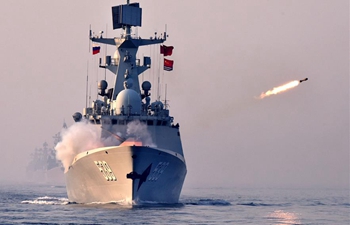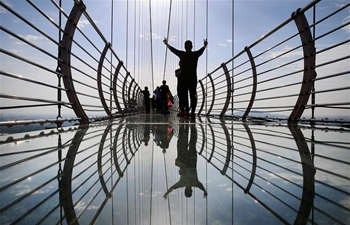BAGHDAD, May 8 (Xinhua) -- Iraqi Prime Minister Adel Abdul Mahdi said that Iraq is continuing its balanced policy with friendly and neighboring countries, asserting that Baghdad is not a place for conflict, according to a statement released by Abdul Mahdi's office on Wednesday.
Abdul Mahdi made his comments during his meeting with U.S. Secretary of State Mike Pompeo, who paid a short and unannounced visit to Baghdad late on Tuesday.
"Iraq continues its balanced policy, which builds bridges of friendship and cooperation with all friends and neighbors, including neighboring Iran," the statement quoted Abdul Mahdi as saying during his meeting with Pompeo.
Abdul Mahdi told Pompeo that "Iraq is building its relations with all countries based on considering its own interests first, and working to deepen the common interests," according to the statement.
Iraq believes that it is important "to resolve all disputes through a sincere and constructive dialogue," Abdul Mahdi said, asserting that "Baghdad is a place where everyone meets and not a place of conflict," the statement added.
Late on Tuesday, Iraqi Foreign Minister Mohammed al-Hakim said in a tweet that he participated in two separate important meetings that Pompeo held with Abdul Mahdi and Iraqi President Barham Salih.
In the two meetings, "we have discussed bilateral relations and the latest security developments in region, as well as counter-terrorism efforts," al-Hakim said, without giving further details.
However, Pompeo told reporters after his meetings with Abdul Mahdi and Salih that he made the surprise visit to Iraq because Iran "is escalating their activity" in the region following the U.S. move to ban Iranian oil exports.
He added that Iraqi leaders promised to protect U.S. interests as they understood that this was their responsibility.
Pompeo arrived in Baghdad after he abruptly cancelled his visit to Germany on Tuesday.
His visit came amid the tense situation in the region after U.S. President Donald Trump decided not to reissue the sanctions' waivers for major importers to continue buying Iran's oil when they expired in early May, in a bid to pile up pressure on Iran.
The United States has also increased its military activities in the region recently, citing a threat of Iranian "attack."




